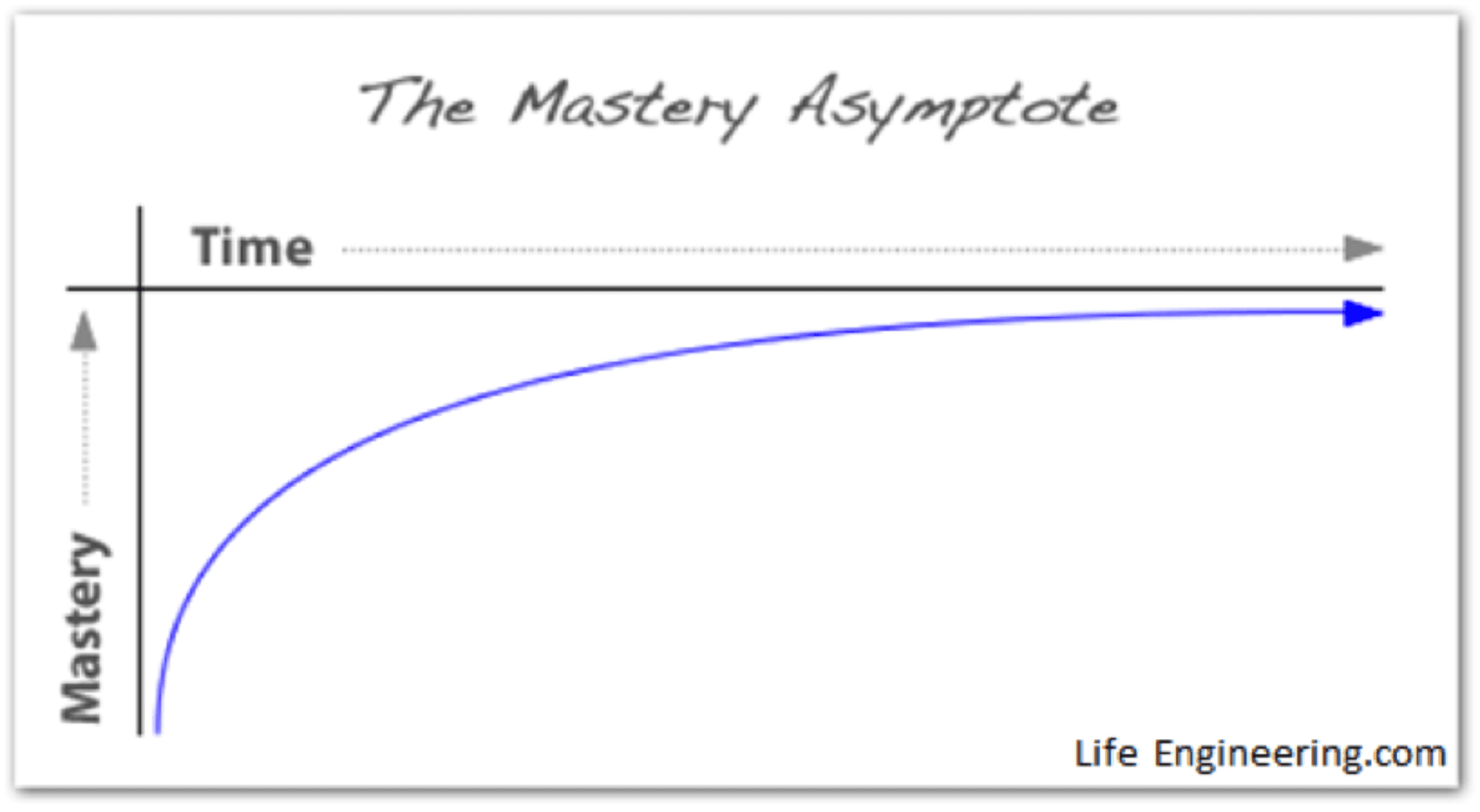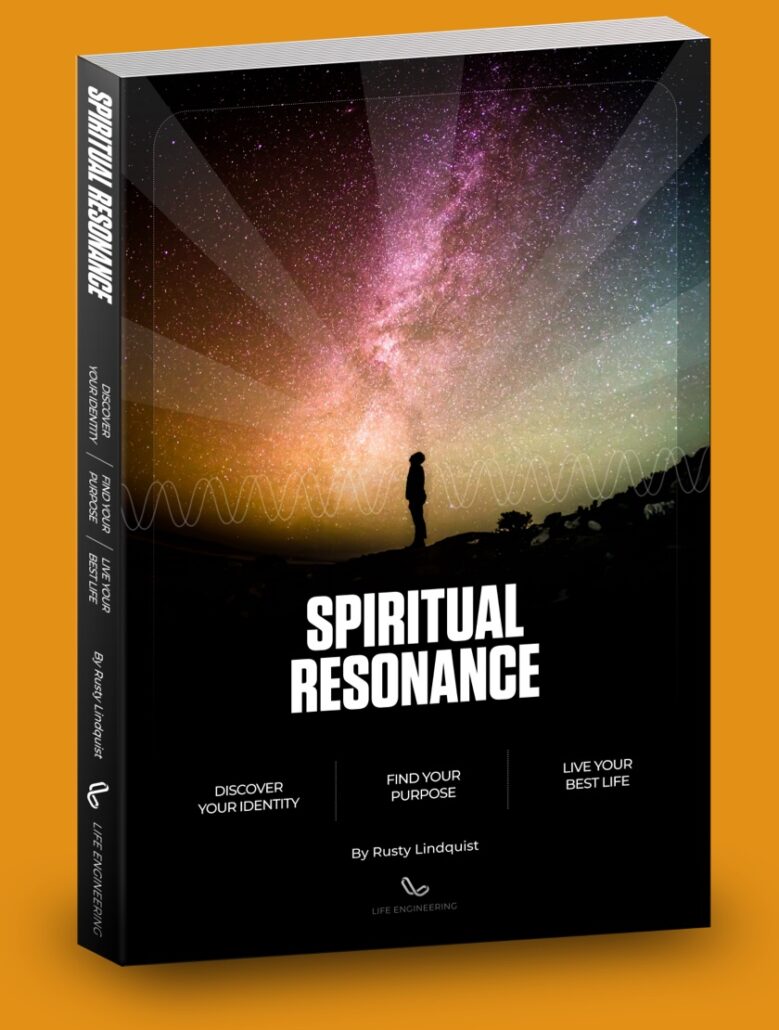Free Course: Alignment Staying on Course Free Course: Alignment From our 16 Elements series, and a part of the Act Pillar, Alignment …
The pursuit of mastery and the mastery asymptote
Henry Wadsworth Longfellow, in his poem “A Psalm of Life” (here), wrote the following:
Not enjoyment, and not sorrow,
Is our destined end or way;
But to act, that each to-morrow
Find us farther than to-day.
I think what he is talking about is the pursuit of mastery.
The pursuit of mastery brings purpose to your endeavors. It provides meaning for the things you do and can be a powerful filter in prioritizing the things you choose to spend your time on.
When life becomes too full of those things that don’t lead to some sort of meaningful mastery, you find yourself without a sense of drive, motivation, or passion. You become disengaged, discouraged, and even depressed.
If you find yourself experiencing this, you should pause, back up, and ask yourself what mastery you’re currently pursuing and how your daily tasks are contributing to that mastery. If you can’t answer the first question, pick something you value and pursue it. If you can’t answer the second question, you should reevaluate the activities that consume your time (read here about consumption).
When you’re actively pursuing mastery (and measuring your progress), you naturally experience added vigor in life. It gives you direction. Things are clearer. Decisions are easier.
What’s more, you find yourself intrinsically motivated to keep moving, to keep driving. It’s a self-fulfilling mechanism built into the neurological workings of your mind (more on this later).
To truly benefit from the pursuit of mastery, however, you must first understand something about the nature of mastery. You must accept from the beginning that you’ll never get there.
In the book Drive by Daniel H. Pink, he describes what he calls the Mastery Asymptote.
First, an asymptote is the mathematical (algebraic) description of a curve that approaches a line, but never reaches it.
He says:
Mastery is an asymptote. You can approach it. You can hone in on it. You can get really, really close to it. But… you can never touch it. Mastery is impossible to realize fully.
The joy is in the pursuit more than the realization. In the end, mastery attracts precisely because mastery eludes.

When you accept the inescapable nature of the mastery asymptote, you realize the joy isn’t in the destination (which will forever elude you), rather, it’s in the journey. The joy is in all the little wins, the little discoveries, the gains you experience along the way.
Curiously, that’s precisely how our brains are designed: to offer rewards (in the form of dopamine and norepinephrine—two neurochemicals released when we experience success) that we crave to repeat. And it’s the small wins along the way that cause this biochemical reinforcement that gives us the “drive” to keep moving.
Think, for example, if someone plopped you down on the summit of Everest. Sure, you might temporarily enjoy the magnificent vista, but it wouldn’t hold even an iota of the meaning as if you had gotten there on your own. It wouldn’t even come close.
Having neglected to invest the effort, you would have forfeited the associated or resulting strength of body, mind and spirit. You would have cheated the challenge of the journey and by so doing robbed yourself of its inherent joys, pleasures, and lessons. And the destination would mean substantially less.
So what matters as you pursue mastery is to not put so much stock in the destination that you fail to appreciate the value and joy of the journey.
This mental paradigm simultaneously prepares you for the failures that will inevitably accompany your pursuits. Because armed with this understanding, you realize that your failures do not define you. The effort and direction you sustain does.
In short, to experience the greatest joy, purpose, and fulfillment from life, pick something meaningful to master, pursue it with vigor, and remember that though you’ll never get there, the more you try, the more fulfilled you will be and the more you’ll enjoy it.
Good luck.
-Rusty
Share this
with someone who might need it
keep reading
The turkey effect How to learn who you are and live your best life raising turkeys People often wonder “who am I?”; …
HOT HANDS HOW identity POWERS PEAK PERSONAL PERFORMANCE HOT HANDS There’s a well-known phenomenon in sports called “Hot Hands.” It’s the idea …
Know Thyself The Key to Unlocking Your Full Potential Know thyself Nestled deeply on the slopes of Mount Parnassus in Greece is …
Employee satisfaction is closely tied to performance. When satisfaction levels rise, productivity, customer service, and profits tend to rise too. Employee turnover slows down and it becomes easier to recruit new talent. See how your team, leadership, and shareholders can benefit from a company culture that emphasizes employee satisfaction.
If you want your customers to be happy, you need to think about employee satisfaction. When employees like their workplaces, they are more effective at their jobs and provide better customer service. Learn more about the link between the employee and customer experience and how to measure employee satisfaction.








Responses